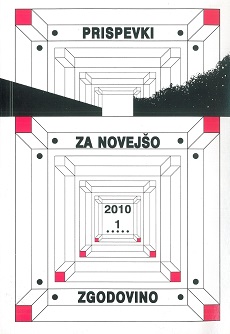Incidenti v Krfskem prelivu - dokončen prelom albanskega režima z zahodnima velesilama. Jugoslovanski podvigi v začetni fazi hladne vojne
Corfu Channel Incident - The Final Break-Up Between the Albanian Regime and the Western Superpowers Yugoslav Exploits in the Beginning of the Cold War
Author(s): Jurij HadalinSubject(s): Diplomatic history, Political history, International relations/trade, Cold-War History, Geopolitics, Peace and Conflict Studies
Published by: Inštitut za novejšo zgodovino
Keywords: Albania; Yugoslavia; Great Britain; Cold War;
Summary/Abstract: On the basis of available archive materials, the following contribution outlines the role of the Yugoslav leadership in the first skirmishes of the Cold War, especially the mine laying in the Corfu Channel. Namely, in 1946 the relations between Yugoslavia and the Western Allies became very tense, and this lasted until the ultimate break-up between Yugoslavia and the Soviet Union. This phenomenon was not only characteristic for Yugoslavia. However, this country was most consistent and independent of all the communist states, which did not always make the best impression on the Moscow circles. Yugoslavia also intervened fatally in the international relations of its close but subordinated ally Albania with the West. Namely, with the agreement of the narrower Albanian leadership it prevented the British recognition of the Albanian government and the improvement of the Albanian relations with the Western superpowers, ensuring, in the key moment, the strengthening of its influence in Albania, which then became also formally and legally almost all-encompassing.
Journal: Prispevki za novejšo zgodovino (before 1960: Prispevki za zgodovino delavskega gibanja)
- Issue Year: 50/2010
- Issue No: 1
- Page Range: 143-156
- Page Count: 14
- Language: Slovenian

